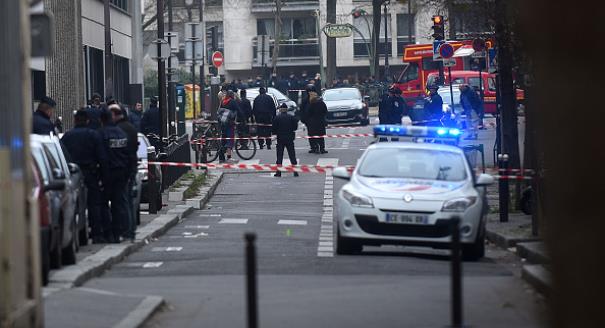Whether the three attacks in Paris on January 7–9 were perpetrated by al-Qaeda in the Arabian Peninsula or by the Islamic State, whether these two organizations are competing for influence, and whether recent setbacks suffered by the Islamic State in Iraq have shifted the group’s tactics are questions of little relevance at this point.
What matters is how France, Europe, the Western world, and Muslim leaders will react to these events, which constitute a watershed moment in European history.
The initial show of national unity after the killings was remarkable, especially on January 11, when 3.7 million people marched against terrorism and for freedom of expression. But that unity may quickly come apart the seams for party-political or social reasons, especially through widespread stigmatization of Muslims. France’s social fabric is now under threat unless the country’s leaders launch a deliberate and collective effort to protect it.
At the same time, if France is to remain a multicultural country—as its authorities and citizens proclaim it to be—it will have to instill a much better understanding of Islam, and of multiculturalism in general, into the population. For example, how many people in France know that Islam forbids images of the prophet, or that caricatures of the pope do not make caricatures of the prophet acceptable to Muslims? Freedom of expression may continue to clash with certain cultural or religious values. The authorities, media, and educators will have to fill this huge gap.
#France needs to instill a better understanding of Islam into its population.Tweet This
In political terms, the three terrorist attacks would logically play into the hands of the right-wing National Front. The center-right Union for a Popular Movement (UMP), which has often tried to outdo the National Front in stigmatizing foreigners and immigrants, may realize it is at an impasse. Perhaps, through these tragedies, the French people have recognized that political tactics that emphasize sectarian divisions are not sustainable.
The events in Paris will inevitably affect antiterrorism policies. European interior ministers met on January 11 to discuss this issue. They have already agreed to make certain legislative and operational changes, and more will follow.
Such measures may run counter to some of the EU’s basic freedoms, especially those of speech and movement. In particular, the union will have to revise the “blindness” of its passport-free Schengen system to the movements of terrorists after one of the suspects escaped unnoticed from Paris to Madrid, and from there to Istanbul and the Turkish-Syrian border. The EU will have to close such loopholes fast, but it is essential that fundamental rights be protected too.
International cooperation will need a boost from the EU and the West as well as from Muslim countries.
A special role will fall to Turkey because, by virtue of its geography, the country constitutes the Islamic State’s gateway to the world in terms of recruitment, resupplies, and oil smuggling. Smothering the Islamic State will take a quantum leap in the West’s cooperation with Turkey. The words of Turkish President Recep Tayyip Erdoğan and former president Abdullah Gül, who condemned the Paris killings, and the presence of Prime Minister Ahmet Davutoğlu in the French capital are positive initial signs.
But it will take a lot more than words to show that Turkey is uncompromisingly on the side of the anti–Islamic State coalition. In particular, Turkish politicians (including some ministers) will need to shed the senseless conspiracy theories that attribute the Paris attacks to Western intelligence—supposedly to isolate Muslim countries.
Seeing massive numbers of citizens marching in defense of civil liberties and the freedom of thought may have puzzled some Muslims, given Charlie Hebdo’s brand of provocative caricatures. The nature of the magazine’s cartoons even led some countries not to participate in the march in Paris on January 11. Undoubtedly, there is still a lingering clash of cultures.
On January 11, the #ParisMarch counted some opportunistic visitors.Tweet This
In this respect, there are three vast topics on which observers should reflect in the weeks and months ahead.
First, some of the countries whose leaders marched in Paris are not exactly pristine examples of fundamental liberties—least of all, freedom of the press. On that Sunday, Paris counted some opportunistic visitors. Should their presence in the French capital be taken as a sign that they will commit to greater respect for human dignity and fundamental freedoms? And should they be reminded of this commitment next time they visit? Western leaders should avoid the mistakes they made after September 11, 2001, when they started cajoling dictators in the name of fighting terrorism while forgetting about fundamental liberties in these countries.
Second, defending freedom of speech was a legitimate response under the circumstances. But upholding Western liberal ideals will require much greater efforts, especially when it comes to explaining that the EU respects the religious values of Islam. Conversely, denouncing Islamophobia should not become the new fig leaf of illiberal Muslim leaders.
Finally, in the week when seventeen were killed in Paris, thousands were also massacred in Nigeria, two journalists were beheaded in Libya, others were flogged in Saudi Arabia, and children froze to death in Syria, Lebanon, and Gaza. Aren’t all victims of violent political events worthy of the same commemorations? Don’t be surprised if selective indignation remains shocking to many outside the Western world.





.jpg)
